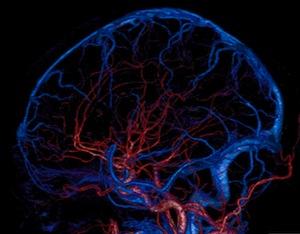
March 16, 2012 - Stroke survivors who like art have a significantly higher quality of life than those who do not, according to new research. Patients who appreciated music, painting and theatre recovered better from their stroke than patients who did not.
The research was presented at the 12th Annual Spring Meeting on Cardiovascular Nursing, March 16-17, in Copenhagen, Denmark.
Stroke is the third cause of death in the western world and the first cause of disability in adults. More and more older people are having strokes and undergoing recovery.
“We know that every six seconds there is a person affected by stroke in the world,” says lead author Dr. Ercole Vellone, assistant professor in nursing science at the School of Nursing, University Tor Vergata, Rome, Italy. “Identifying strategies to improve stroke recovery and patients’ quality of life represent a priority for the healthcare system and art exposure seems to be promising.”
For the research, 192 stroke survivors (average age of 70 years) were asked if they liked or did not like art (music, painting, theatre). Quality of life was compared for patients interested in art (105) and patients not interested in art (87).
Patients interested in art had better general health, found it easier to walk and had more energy. They were also happier, less anxious or depressed and felt calmer. They had better memory and were superior communicators (speaking with other people, understanding what people said, naming people and objects correctly).
“Stroke survivors who saw art as an integrated part of their former lifestyle, by expressing appreciation towards music, painting and theatre, showed better recovery skills than those who did not," said Dr. Vellone.
“In our study the ‘art’ group of patients showed a comparable clinical picture to the ‘no art’ group,” he added. “This is important because it means that patients belonging to the ‘art’ group had a better quality of life independently from the gravity of stroke. The results suggest that art may make long term changes to the brain which help it recover when things go wrong.”
Other researchers have shown that listening to our favourite music directly stimulates a feeling a pleasure by releasing dopamine in the brain. Dopamine is the starting point of the so-called gratification circuit that activates oxytocin (the hormone of love) and finally endorphins (the molecules of pleasurable emotions). “Dopamine improves quality of life each time it is released in the brain,” said Dr. Vellone. “Further research is needed to see if other art forms stimulate dopamine release.”
For more information: www.escardio.org


 January 05, 2026
January 05, 2026 









